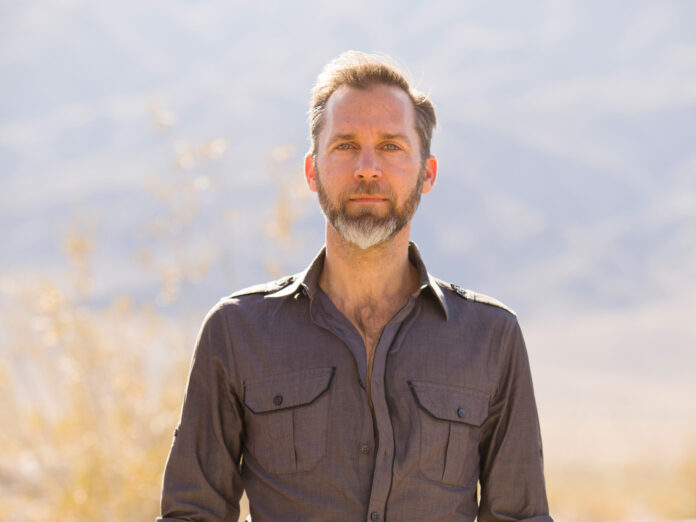You’ve mentioned you work exclusively with successful men wondering ‘What’s next?’ but I’ve also heard you describe your clients as “high-achieving misfits…”
Yeah, high-achieving misfits in transition.
My father told me I should never say that because it might offend people. But it always brings a smile from the men who can relate. They all say, “That’s me!”
I think it’s actually a personality type. Entrepreneurial, maverick types. Innovators. They know they’re different and it works for them — it’s been a key to their success. So, they’re not afraid to own it. Especially in midlife.
Sadly, though, there’s often some lingering doubt or shame deep down. Usually from childhood when they were told they weren’t okay being themselves and they’re still repressing a good dose of their gifts and talents because of it.
That’s often where they make the biggest strides in Purpose Mapping: reclaiming all that suppressed power. And the emotional baggage they’ve had it wrapped up in just melts away. It’s really gratifying to be with them through that process. Their face brightens, they breathe easier, everything just comes into focus.
What sort of backgrounds do these ‘misfits’ have?
It could be anything, but most of them are professionals or business owners.
They’re often self-described as ‘unemployable’ and generally pretty proud of it. They may have had one job in their earliest years, but many of them have never worked for anyone else. Occasionally, executives or high level administrators; but that’s a slightly different path.
I’m sure there are plenty of misfits who aren’t successful. But the ones who find their way to me are high-achievers who found a way to make their gifts work for them. Which, of course, creates some other issues.
“It’s lonely at the top”
What kind of issues?
It’s lonely at the top. They might have good people around them. Family. Team. But at their core, they pretty much only relate to other highly successful mavericks, who, by their very nature, are all living on their respective mountain tops. Not really congregating in the valley.
Regardless of their GPA, they’re smarter than your average bear and they run circles around the people they hire to help them, which slows them down or leaves them feeling misunderstood or disappointed.
Their family often can’t relate to them, despite loving them. They outgrow friend groups because of mindset, priorities, or just busyness. Everybody seems to want something from them. So they never really get too deep or emotionally connected. That’s a burden very few can understand. Over decades, it takes a toll.
The Harvard Study on men was really clear: relationships are the #1 key to a fulfilling life.
Humans are tribal creatures. We’re wired to connect, to share our struggles, to be there for one another. It’s a vital nutrient. That’s why I recommend men’s groups like M.E.T.A.L. where you and I met. Without regular, emotionally satisfying human connection, life loses its savor.
“When men already have everything they could want, they lose the basic mechanics that produce positive neurochemistry”
Agreed. What other commonalities do these men have?
Another thing I hear a lot, is successful men trapped in the King Midas syndrome where everything they touch turns to gold. Or maybe another view on this is having the best of the best of whatever money can buy.
Which is great. But, you can’t eat gold. You can’t experience emotional intimacy with gold. And once you have a mountain of gold, you get stuck wondering what to do next.
Neurochemically, we get dopamine from reaching for something. Like a chimp in a tree reaching for a banana. It’s the same goal-reward circuit in our brains. When men already have everything they could want, after they’ve gone out and done everything they’ve ever dreamed of, they lose the basic mechanics that produce positive neurochemistry.
Can you give some examples?
A trauma surgeon called me. He sold a network of clinics for $250,000,000. Halfway through the call, I asked him what he wanted. He couldn’t answer. He got really quiet and told me: “I could literally be anywhere in the world right now, with anyone I want, doing anything I want… and I’m here on the phone talking to you. Can you help me?”
That’s really common. These men are feeling confused, oddly depressed, and, on top of it all, they feel guilty because: why the hell isn’t everything they have enough already?
You’d be surprised how often I hear things like: “My therapist has never made more than $80,000 a year. They look at me like I’m crazy when I tell them I’m unhappy despite having more money than I could possibly spend. How are they supposed to help me?”
Suidical ideation is more common than anyone would imagine. And a big part of it is the isolation of being alone. Nobody can relate. And they feel shame because they’re so wealthy and it doesn’t make sense they feel so awful, so they isolate even more.
It’s tragic. Tony Hsieh-level tragic.
“Everything we do rewires the brain to produce the positive neurochemistry they used to feel on their climb up Success Mountain”
So, how do you help men who reach that point in life?
Everything we do rewires the brain to produce the positive neurochemistry they used to feel on their climb up Success Mountain — when they had a high, hard goal and every day was a challenge they were 100% bought in to. When they get to the top and realize there’s nothing up there, it creates a natural breakdown. This usually coincides with a man’s midlife transition.
That breakdown process is as natural as puberty. You can’t stop it, can’t speed it up. All we can do is learn about it and try to understand it so it doesn’t feel so personal. It’s normal. It’s just a specific passage on the map. So, we help men understand the process and just relax by giving them some interesting self-discovery material to focus on. And plenty of reassurance they will get through it and it’ll be well worth the ride when it’s all done. And it is. It’s extraordinary.
Are there specific tools or techniques you use? How do you do that?
As I mentioned, I’ve read well over 1000 books, invested nearly a half-million in coaching, training, therapy, workshops, etc… experimenting on myself for about 30 years, plus working with clients applying all the tools I’ve gathered or developed. But it’s not just having a toolbox full of tools. It’s the way we use them in a specific sequence to create a true Hero’s Journey rite-of-passage experience.
First thing we do is create some immediate relief. Simply making the decision to take this Journey is often enough to create a goal-reward circuit in the brain. There’s a clear container. A structure. A way to succeed. A worthy endeavor.
Next, we look at everything that’s working and not working in their life and come up with some tiny habits together — an ultra-light framework for re-wiring their brain to produce the missing dopamine, serotonin, oxytocin…
Then, we go through 6 personality assessments and a 360º to identify all their unique strengths and weaknesses. It’s illuminating to see yourself through any one of these profiles, but to create a scatter-plot of insights from each of them leads up to a profound epiphany about oneself.
At the end, we overlay all the scatter-plots of insight and a through-line emerges. It’s kind of like those 3D image books that look like chaos until you learn to shift your perception and then it’s not just a picture, but a shockingly clear 3-dimensional picture that stands out plain as day. It was always there, but we help the man see it.
Once you see yourself that clearly, it’s impossible to unsee it. And life proceeds from there. Very much like a butterfly emerging from a chrysalis. Purpose Mapping builds that chrysalis around a man and we help him transform and come out ready for his next great adventure.
“All men have an opportunity to create a more fulfilling life after their midlife transformation”
What happens when men emerge from their midlife transition?
There’s a difference for men who have been highly successful and men who haven’t.
Successful men have means. That changes how the second half of life can look. All men have an opportunity to create a more fulfilling life after their midlife transformation. But when a man is still struggling with Maslow’s survival-level needs, it’s just a different game.
For high-achievers who have climbed Success Mountain, they’re ready for the mountain of fulfillment, meaning, purpose, legacy. And the old saying is true:
“What got you here won’t get you there.”
So, there has to be a transformational process, an experience that leads men further along the path toward the mountain of Purpose.
Before that, they’re either a caterpillar pretending to be a butterfly, or they’re stuck in the chrysalis… the dark forest between mountains. And you don’t want to get trapped there.
This is often when men come to us. They’re lost, they can’t see a way forward. They end up either golfing their way to the grave pretending it’s fulfilling, or doing something really scary to try to get that dopamine back.
That’s what we call a midlife crisis. Not recommended. And not necessary.
Is there anyone you can’t help?
We are very selective.
We can’t help men who are committed to staying stuck. Using all your smarts and talents to try to stay who you were when everything in life is falling apart to nudge you forward… that’s ego. And we can’t help men who prefer their ego over the incredible life that’s awaiting them.
No judgement. Everyone gets to grow in his own time. We just aren’t the right place for a man in that phase of his journey.
We also can’t help men with mental health issues — entrenched narcissism, sociopathy, etc. Typically, successful men are good, healthy people who get along well with others, are willing and able to confront their own shortcomings. The men who are inspired to take this Journey are almost invariably the latter.
We can work with mild depression, heartbreak, ADD and other neuro-divergencies as long as the man is willing to ‘do the work’ of looking at his strengths and weaknesses to find a greater purpose in the through-line that emerges by the end of the process.
If a man can stay the course and fully show up for himself, we can get him there.
Craig Filek is a serial entrepreneur with 29 years of Men’s Work training. His leadership & facilitation skills were forged in the fire of empathic intuition with an eye for empowerment & flow. Billionaires, executives, founders & innovative teams around the world seek Craig’s guidance when making life-changing decisions.
Connect with Craig at www.PurposeMapping.com/ageist



